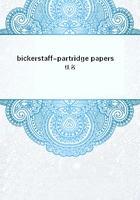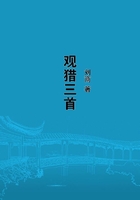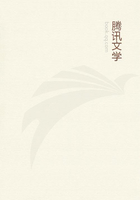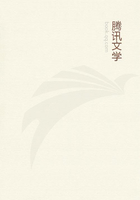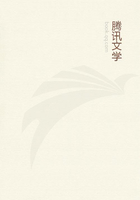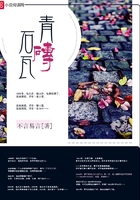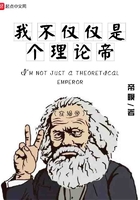Here was a sermon which arrested the attention of all classes. Crowds came to gaze upon the drawings. None could fail to read the moral, and many were deeply impressed by the contrast between the meekness and humility of Christ the Master and the pride and arrogance of the pope, His professed servant.
There was great commotion in Prague, and the strangers after a time found it necessary, for their own safety, to depart. But the lesson they had taught was not forgotten. The pictures made a deep impression on the mind of Huss and led him to a closer study of the Bible and of Wycliffe's writings.
Though he was not prepared, even yet, to accept all the reforms advocated by Wycliffe, he saw more clearly the true character of the papacy, and with greater zeal denounced the pride, the ambition, and the corruption of the hierarchy.
From Bohemia the light extended to Germany, for disturbances in the University of Prague caused the withdrawal of hundreds of German students.
Many of them had received from Huss their first knowledge of the Bible, and on their return they spread the gospel in their fatherland.
Tidings of the work at Prague were carried to Rome, and Huss was soon summoned to appear before the pope. To obey would be to expose himself to certain death. The king and queen of Bohemia, the university, members of the nobility, and officers of the government united in an appeal to the pontiff that Huss be permitted to remain at Prague and to answer at Rome by deputy.
Instead of granting this request, the pope proceeded to the trial and condemnation of Huss, and then declared the city of Prague to be under interdict.
In that age this sentence, whenever pronounced, created widespread alarm.
The ceremonies by which it was accompanied were well adapted to strike terror to a people who looked upon the pope as the representative of God Himself, holding the keys of heaven and hell, and possessing power to invoke temporal as well as spiritual judgments. It was believed that the gates of heaven were closed against the region smitten with interdict; that until it should please the pope to remove the ban, the dead were shut out from the abodes of bliss. In token of this terrible calamity, all the services of religion were suspended. The churches were closed. Marriages were solemnized in the churchyard. The dead, denied burial in consecrated ground, were interred, without the rites of sepulture, in the ditches or the fields. Thus by measures which appealed to the imagination, Rome essayed to control the consciences of men.
The city of Prague was filled with tumult. A large class denounced Huss as the cause of all their calamities and demanded that he be given up to the vengeance of Rome. To quiet the storm, the Reformer withdrew for a time to his native village. Writing to the friends whom he had left at Prague, he said: "If I have withdrawn from the midst of you, it is to follow the precept and example of Jesus Christ, in order not to give room to the ill-minded to draw on themselves eternal condemnation, and in order not to be to the pious a cause of affliction and persecution. I have retired also through an apprehension that impious priests might continue for a longer time to prohibit the preaching of the word of God amongst you; but I have not quitted you to deny the divine truth, for which, with God's assistance, I am willing to die."--Bonnechose, The Reformers Before the Reformation, vol. 1, p. 87. Huss did not cease his labors, but traveled through the surrounding country, preaching to eager crowds. Thus the measures to which the pope resorted to suppress the gospel were causing it to be the more widely extended. "We can do nothing against the truth, but for the truth." 2Corinthians 13:8.
"The mind of Huss, at this stage of his career, would seem to have been the scene of a painful conflict. Although the church was seeking to overwhelm him by her thunderbolts, he had not renounced her authority. The Roman Church was still to him the spouse of Christ, and the pope was the representative and vicar of God. What Huss was warring against was the abuse of authority, not the principle itself. This brought on a terrible conflict between the convictions of his understanding and the claims of his conscience. If the authority was just and infallible, as he believed it to be, how came it that he felt compelled to disobey it? To obey, he saw, was to sin; but why should obedience to an infallible church lead to such an issue? This was the problem he could not solve; this was the doubt that tortured him hour by hour. The nearest approximation to a solution which he was able to make was that it had happened again, as once before in the days of the Saviour, that the priests of the church had become wicked persons and were using their lawful authority for unlawful ends. This led him to adopt for his own guidance, and to preach to others for theirs, the maxim that the precepts of Scripture, conveyed through the understanding, are to rule the conscience; in other words, that God speaking in the Bible, and not the church speaking through the priesthood, is the one infallible guide."--Wylie, b. 3, ch. 2.
When after a time the excitement in Prague subsided, Huss returned to his chapel of Bethlehem, to continue with greater zeal and courage the preaching of the word of God. His enemies were active and powerful, but the queen and many of the nobles were his friends, and the people in great numbers sided with him. Comparing his pure and elevating teachings and holy life with the degrading dogmas which the Romanists preached, and the avarice and debauchery which they practiced, many regarded it an honor to be on his side.
Hitherto Huss had stood alone in his labors; but now Jerome, who while in England had accepted the teachings of Wycliffe, joined in the work of reform. The two were hereafter united in their lives, and in death they were not to be divided.

